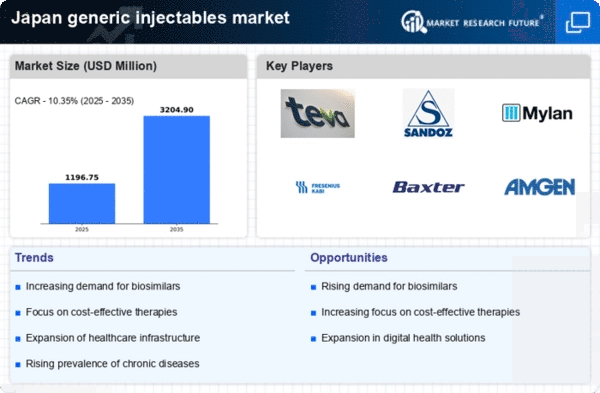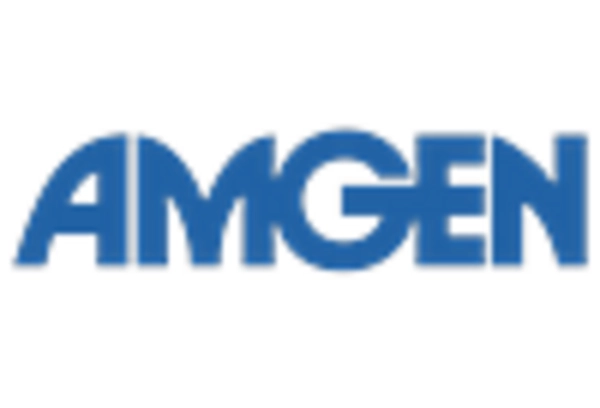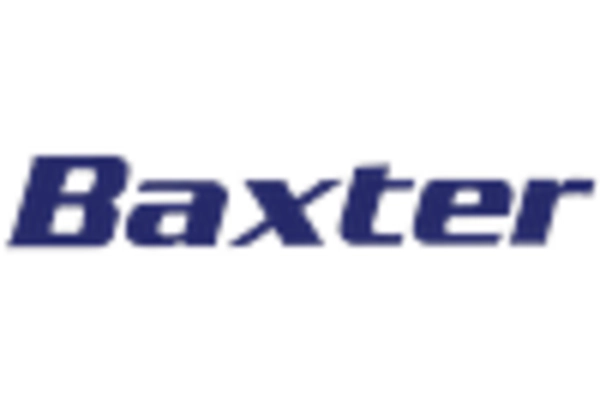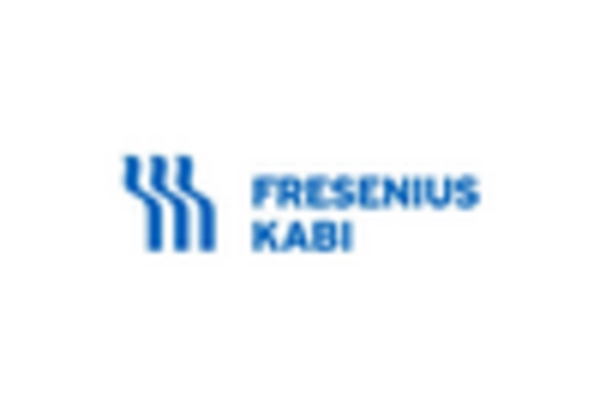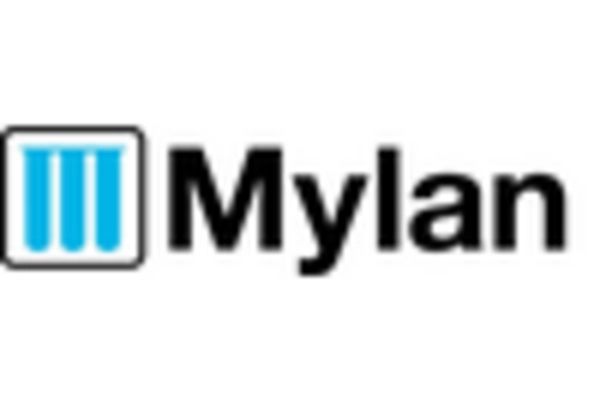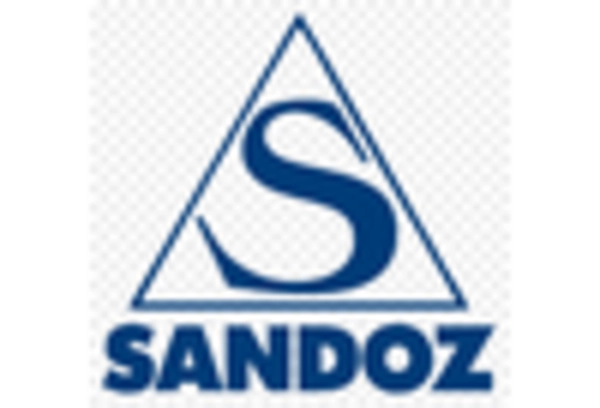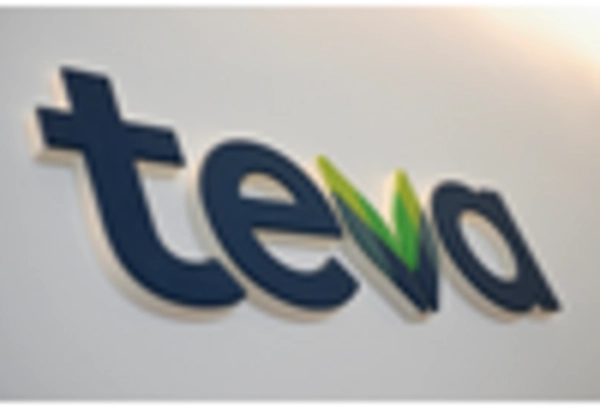Enhanced Focus on Biosimilars
The growing emphasis on biosimilars in Japan is emerging as a significant driver for the generic injectables market. As the patent expirations of several biologic drugs approach, the introduction of biosimilars presents an opportunity for cost savings and increased patient access to essential therapies. The Japanese government has implemented policies to encourage the development and adoption of biosimilars, aiming to reduce healthcare costs and improve treatment options. In 2025, the biosimilars market is anticipated to reach approximately $1 billion, with a substantial portion attributed to injectable formulations. This trend not only supports the growth of the generic injectables market but also fosters competition among manufacturers, potentially leading to lower prices and improved availability of critical medications. The synergy between biosimilars and generic injectables may reshape the therapeutic landscape in Japan, enhancing patient outcomes.
Increasing Healthcare Expenditure
The rising healthcare expenditure in Japan is a pivotal driver for the generic injectables market. As the government allocates more funds towards healthcare, the accessibility of medications improves, leading to a higher demand for cost-effective treatment options. In 2025, Japan's healthcare spending is projected to reach approximately $500 billion, with a significant portion directed towards pharmaceuticals. This trend indicates a growing acceptance of generic injectables as viable alternatives to branded drugs, particularly in therapeutic areas such as oncology and diabetes management. The increasing focus on value-based care further propels the adoption of generics. Healthcare providers seek to optimize treatment costs while maintaining quality. Consequently, the generic injectables market is likely to experience substantial growth, driven by the need for affordable healthcare solutions in an aging population.
Regulatory Support for Generic Drugs
The regulatory environment in Japan plays a vital role in shaping the generic injectables market. The Pharmaceuticals and Medical Devices Agency (PMDA) has streamlined the approval process for generic drugs, facilitating quicker market entry. This supportive regulatory framework encourages pharmaceutical companies to invest in the development of generic injectables, thereby increasing the variety of available products. In recent years, the PMDA has reported a significant rise in the number of approved generic injectables, reflecting a commitment to enhancing patient access to affordable medications. As the government continues to prioritize the promotion of generics, the market is likely to witness sustained growth. The emphasis on quality and safety in the approval process further instills confidence among healthcare providers and patients, reinforcing the role of generic injectables as a cornerstone of Japan's healthcare system.
Aging Population and Chronic Diseases
Japan's demographic shift towards an aging population is a crucial factor influencing the generic injectables market. With over 28% of the population aged 65 and older, the prevalence of chronic diseases such as diabetes, hypertension, and cancer is on the rise. This demographic trend necessitates a greater demand for injectable medications, particularly generics, which are often more affordable than their branded counterparts. The Ministry of Health, Labour and Welfare has reported that chronic diseases account for nearly 80% of healthcare costs in Japan. As healthcare providers increasingly turn to generic injectables to manage these conditions, the market is expected to expand significantly. The focus on preventive care and early intervention emphasizes the need for accessible treatment options. This positions the generic injectables market as a vital component of Japan's healthcare landscape.
Rising Awareness of Generic Medications
The increasing awareness of generic medications among healthcare professionals and patients notably drives the generic injectables market. Educational initiatives and campaigns by the government and healthcare organizations have contributed to a better understanding of the efficacy and safety of generics. As patients become more informed about their treatment options, the demand for generic injectables is expected to rise. In 2025, surveys indicate that approximately 70% of patients in Japan are aware of the benefits of generic drugs, which may lead to a shift in prescribing practices among physicians. This growing acceptance is likely to enhance the market share of generic injectables, as healthcare providers recognize the potential for cost savings without compromising quality. The trend towards patient-centered care further supports this movement, as patients increasingly seek affordable alternatives to branded medications.


